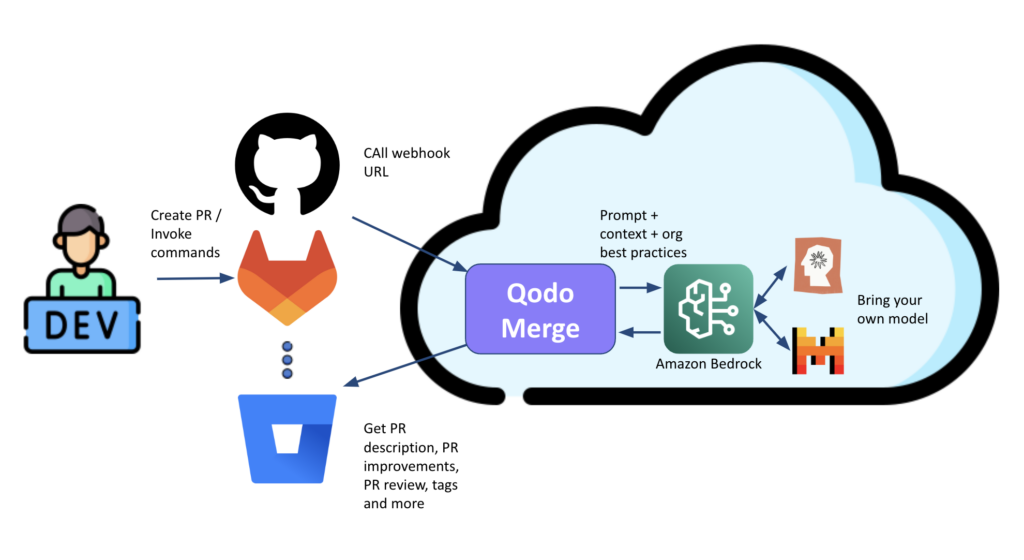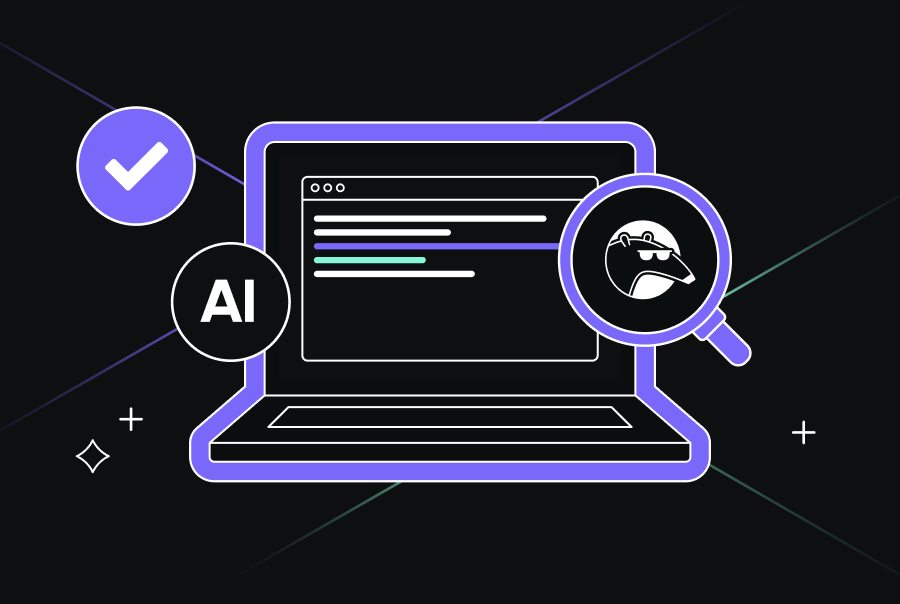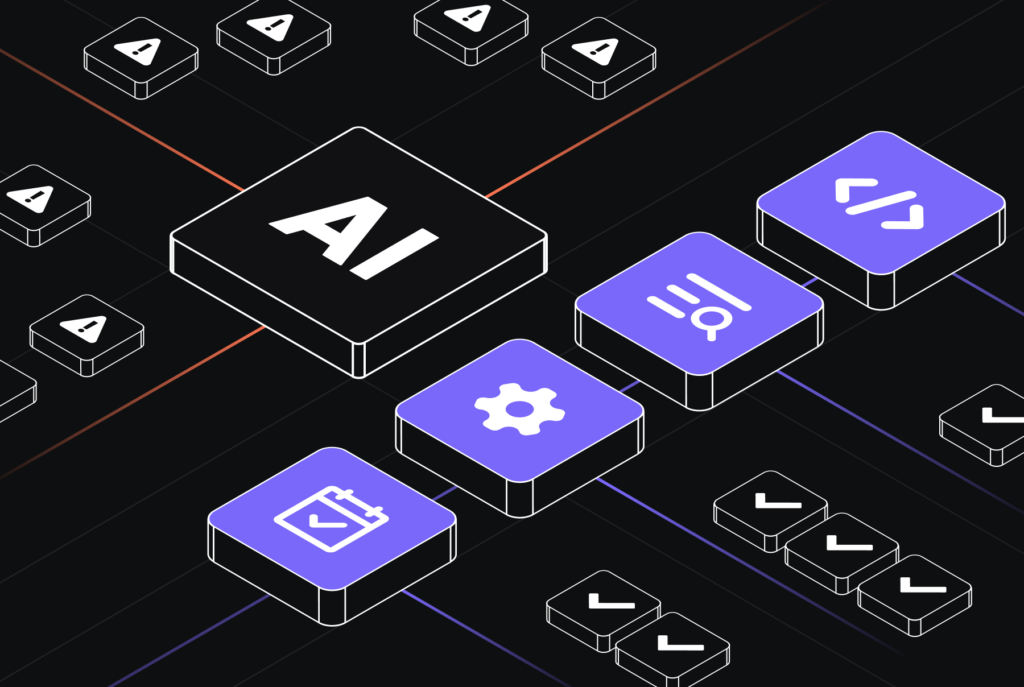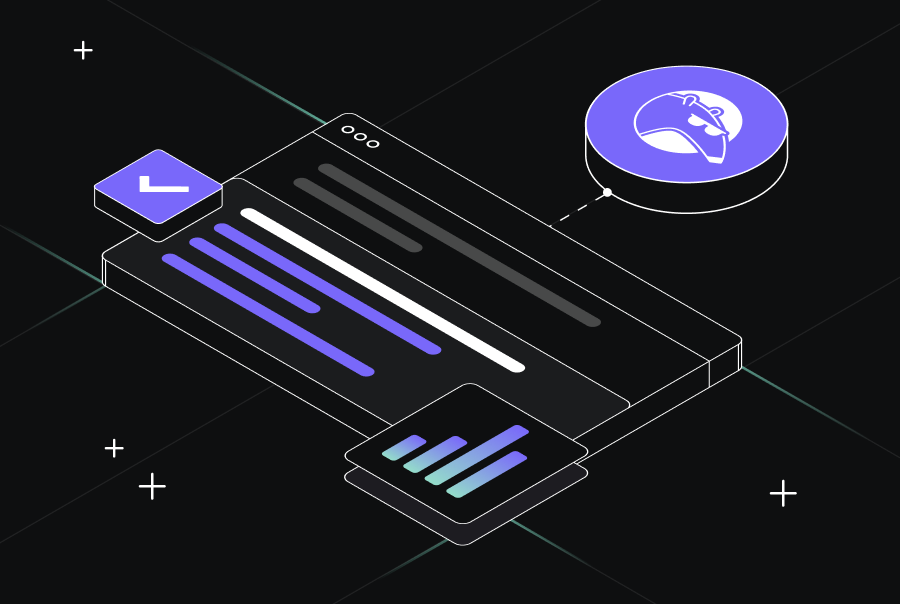Efficient Code Review with Qodo Merge (formerly PR-Agent) and AWS: Filling Out the Missing Pieces of the Puzzle


Code review and approval processes often face significant challenges in today’s fast-paced software development landscape. As outlined in a preliminary blog post by Xan Huang from AWS, “Enhance code review and approval efficiency with generative AI using Amazon Bedrock”, the current process of reviewing pull requests (PRs) is time-consuming, error-prone, and heavily reliant on human effort. These issues can delay product timelines and introduce risks into the development pipeline.
Generative AI has the potential to revolutionize this aspect of software development, and tools like Qodo Merge are leading the way in bringing this vision to life. In this follow-up post, we will explore how Huang’s theoretical framework can be practically implemented using Qodo Merge and Amazon Bedrock, offering a seamless solution that enhances code review and approval efficiency. We will delve into the integration of Qodo Merge with Amazon Bedrock, providing real-world examples of how this combination addresses the pain points of code reviews.
Introducing Qodo Merge
Qodo Merge is designed to tackle the very challenges Huang discussed. It serves as a generative AI-powered assistant that complements the traditional code review process, automating routine tasks while improving both the quality and speed of PR approvals.
Qodo Merge is compatible with a variety of major code repository systems and is deeply integrated with Amazon Bedrock’s advanced generative AI models. These integrations enable Qodo Merge to analyze code efficiently, generate high-quality suggestions, and provide automated PR descriptions and walkthroughs. This not only enhances productivity for developers but also reduces the cognitive load on reviewers, allowing them to focus on more strategic decisions.
Leveraging Amazon Bedrock’s Generative AI
As highlighted in Xan Huang’s original post, Amazon Bedrock offers access to cutting-edge generative AI models like Anthropic’s Claude, which can automate complex code analysis tasks. With Qodo Merge, this integration empowers developers and reviewers by generating insightful code summaries and suggestions, streamlining the review process.
Let’s walk through a typical integration scenario: Qodo Merge is deployed within a project, and integrated with existing version control systems. Once set up, Qodo Merge automatically generates detailed summaries and suggestions for code improvements. It can highlight potential issues, recommend fixes, and provide explanations for its suggestions using the language models available through Amazon Bedrock.
This integration can significantly reduce review times, as developers no longer have to manually write PR descriptions or dive deep into the code to understand changes. Instead, the agent provides a clear, AI-generated analysis, ready for review. Below is a simple schema illustrating how the Qodo Merge and Amazon Bedrock can be configured for seamless integration with repository systems.

Case Studies and Conclusion
Companies such as Intel have already adopted Qodo Merge as part of their workflow and have seen tangible improvements in code review efficiency, quality, and approval times. For instance, one Qodo customer observed that the time spent reviewing PRs was reduced by 30%, while another noted improvements in overall code quality due to the AI-generated suggestions. These case studies demonstrate the real-world value of Qodo Merge in streamlining code review processes.
In conclusion, by integrating Qodo Merge with Amazon Bedrock, developers, reviewers, and project managers can overcome the challenges traditionally associated with code reviews. This partnership delivers a faster, more efficient, smarter code review process that leverages generative AI technology.



